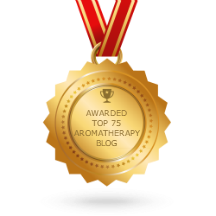My friend and client, Mikki Melinda Anderson, of
StressBusters Spa in Laguna Hills CA has taken a brave stand against dangerous practices in the Spa and Massage industries. I'm glad she allowed us to share her writing here.
As a professional clinical Aromatherapist with thousands of
certified educational hours in Aromatherapy from accredited schools, I
am shocked to have recently learned that some very well-known spas in
California now offer “Raindrop and Aromatouch Therapy”, using copious
amounts of undiluted oils applied directly to the skin of the client.
We do not and will not offer these therapies and wanted our clients and
community to know why.
Mikki M. Anderson, Clinical Aromatherapist, StressBusters
While we make no statement about the companies offering these
therapies, we do make a stand against the therapies above. In the USA,
the National Association of Holistic Aromatherapy (NAHA) says : “There
are persons performing Raindrop Therapy (RDT), who have not received
training, observing proper curriculum standards. These public
demonstrations and conferences have been presented to the general public
as well as audiences of health care professionals including physicians,
nurses, midwives, doulas, and massage therapists.” These therapies as
they are currently performed cannot be supported as a recognized
aromatherapy “best practice” because:
- It promotes the unsafe use of essential oils, putting people at risk of skin irritation.
- There is no published empirical substantiation to support
its claims that RDT is a “tool for assisting the body in correcting
defects in the curvature of the spine, such as scoliosis” and other
claims.
In my several thousand hours of formal accredited Aromatherapy
education, I have learned that these therapies are disapproved by (but
not limited to):
- All reputable aromatherapy schools
- All professional Aromatherapists, (sample: http://www.aromaceuticals.com/blog/raindrop-therapy-unsafe-questionable),
- Robert Tisserand (author, “Essential Oil Safety” 2014) (see below)
- Aromatherapy Registration Council. (http://aromatherapycouncil.org/?p=44)
- Reputable non multi-level marketing essential oil companies (sample: http://www.naturesgift.com/RDT.htm).
- Alliance of International Aromatherapists: http://www.alliance-aromatherapists.org/aromatherapy/aromatherapy-safety/#neat
- National Association of Holistic Aromathery (NAHA)
- Giselle Basturay (Clinical Aromatherapist, mother and store owner sums it up on her website: http://www.granolaliving.com/2012/07/why-we-dont-offer-doterra-young-living-or-other-multi-marketing-brands-of-essential-oils/#comment
StressBusters believes that practitioners and spas who offer the use
of undiluted oils have not done their due diligence in researching the
proper use of essential oils and/or may be interested in profits over
safety. If they had researched from reliable sources, these spas would
have discovered that there is a pending and growing complaint to the
FDA on behalf of clinical Aromatherapists across the United States.
Burns, sickness, extensive skin reactions and even DNA damage have
occurred with incorrect application
http://aromatherapyunited.org/reasons/.
Even acknowledging the intense controversy of these treatments should
be in our humble opinion, be reason for reputable spas enough to forgo
their use.
Robert Tisserand, the foremost expert on Essential Oil Safety states:
In regard to safety, the application of undiluted essential oils to
the skin is controversial. It is proscribed by most aromatherapy schools
and practitioner associations. Trade organizations such as the UK’s
Aromatherapy Trade Council require their members to include a safety
statement on bottles of essential oils to the effect that the oil should
not be used undiluted on the skin. On the other hand, the ‘raindrop
technique’ involves the application of undiluted essential oils.
(Tisserand, 2014).
There are reasons for avoiding this practice, especially in
vulnerable groups such as infants, children, and elderly or for a
multitude of health conditions and aromatherapy treatments should be
based on the overall health of the client. The risk of skin reactions
increases with essential oil concentration (Tisserand 2014, pg 72) and
the widespread use of raindrop technique could lead to an escalation of
skin allergy to essential oils. Undiluted thyme and oregano oils, for
example, pose a risk of skin irritation. Second, when essential oils are
applied undiluted to the skin, percutaneous absorption may lead to
relatively high constituent concentrations in the bloodstream, which
increases the risk of systemic toxicity. Wintergreen oil, for example,
is moderately-to-severely toxic, and many basil oils are potentially
carcinogenic, with recommended dermal use levels of below 2%. Finally,
the risk of drug interactions is greatly increased with the use of
undiluted oils.
Tisserand goes on to state “encouraging untrained people to apply
concentrated essential oils to themselves or others is unwise and
unsafe. “ Battaglia in his book states that improper use of undiluted
oils can cause toxicity, skin reactions, neurotoxicity, hepatotoxicity
(in the liver) and is a hazard during pregnancy (Battaglia, 2003).
To be safe then, spas offering Raindrop or AromaTouch should offer
them exclusively to perfectly healthy, non-stressed, young, flawless
skin and apply the oils only to a one inch area on the bottom of the
feet. Amusing thought that they do that, isn’t it?! Furthermore,
educated Aromatherapists would have tested all oils used in these
treatments (diluted of course) by a 24 hr. skin patch on the client
prior to any treatment on a potentially reactive client (Peterson,
2014). Do the spas offering these treatments do this? Hardly!
Furthermore, proponents of these therapies claim ridiculous and false
benefits for this use of essential oils Most of these practitioners
of the therapies are devoid of any reputable essential oil education
whatsoever outside of the MLM Company that is selling them the oils
and blindly follow the hype generated by the company. Any degree of
success in their clients has actually caused more likely from other
reasons than the AromaTouch or Raindrop Therapy. Furthermore, the harm
these therapies have caused is REAL and well documented.
While we believe and promote the use of Aromatherapy and Clinical
Aromatherapy and have seen fabulous results in alleviating insomnia,
enhancing profound relaxation, reducing anxiety and stress, reducing
nausea and pain and promoting a wondrous sense of well-being, the
application must be administered properly and with a proper client
history.
Consequently, we stand AGAINST BOTH RAINDROP THERAPY AND
AROMATOUCH.
StressBusters Wellness Spa has been cutting edge with our therapies
for 24 years. However, 100% of the time we do time-consuming research
in order to insure the public that the service is not only SAFE but also
that our therapists have gone through the best education in the
respective therapy and are qualified to provide it. We have NEVER
“educated” our staff through classes provided by our retail vendors as
do other spas. We believe in best practices…. Attending reputable
schools and offering SAFE therapies that do not cause harm. We even
research the schools themselves as there are some unethical diploma
pushers out there. Consequently, our offerings are
SAFE as well as effective and that is a promise that you can trust.
References
Battaglia, Leo, 2003, The Complete Guide to Aromatherapy, International Center of Holistic Aromatherapy, Austrialia, pg. 148
Peterson, Dorene, American College of Healthcare Sciences, Portland, Oregon 2014
Tisserand, Robert, 2014, Essential Oil Safety, Churchill Livingstone, New York
Uter, W., Schmidt, E., 2010, Contact Allergy to Essential Oils:
Current Patch Test Results (2000-2008) from the Information Network of
Departments of Dermatology. Contact Dermatitis 63-, 277-283






